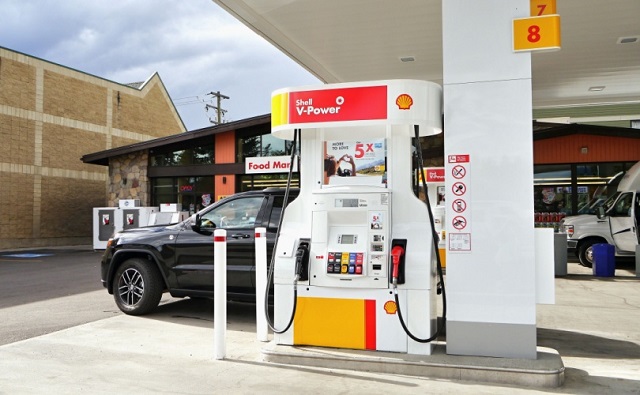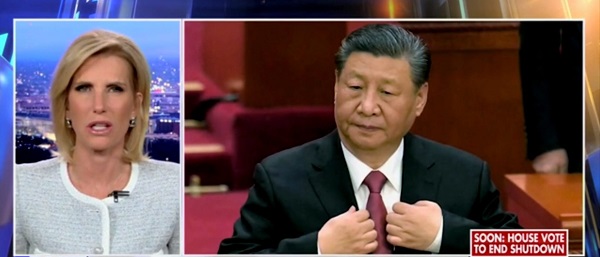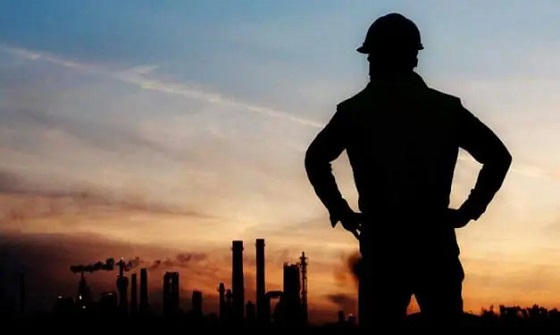Business
Shell scales back emissions goals, says cutting oil and gas production is ‘not healthy’

From LifeSiteNews
The company’s report mentions that its 2035 ‘net carbon intensity’ target has been ‘retired’ due to ‘uncertainty in the pace of change in the energy transition.’
Shell, a major oil and gas supplier in Canada whose federal government has openly called for the end of fossil fuels, announced that it will not meet its planned 2035 emissions targets.
Wael Sawan, the Anglo-Dutch company’s Canadian CEO, noted in Shell’s latest “energy transition strategy” update that “We believe the world will continue to need oil and gas for many years.”
The company had set a target to reduce its so-called ‘net carbon intensity’ to 20% by 2030 but revised the goal to 15%.
Shell said that “cutting oil and gas production,” the objective of the Canadian government, “is not healthy” for the global energy system.
Shell’s report mentions that its 2035 target has been “retired” due to “uncertainty in the pace of change in the energy transition.”
The company still says it has a net-zero target by 2050, but this is not set in stone because “if society is not net-zero in 2050,” then there would be a “significant risk that Shell may not meet this target.”
Shell plans to increase its LNG production by 30%. “Investment in oil and gas will be needed because demand for oil and gas is expected to drop at a slower rate than the natural decline rate of the world’s oil and gas fields, which is 4-5% a year,” the company said.
Other major oil and gas producers such as ExxonMobil, BP, and Canadian company Suncor have all scaled back their own emissions reduction plans.
Faced with the realities of a consumer-driven market and without government interference such as rebates or mandates, studies show that people prefer gas-powered cars over electric vehicles, which are being touted by governments as the saviors to solving what they claim is a “climate change” crisis.
Despite this, Canadian Environment Minister Steven Guilbeault in December 2023 announced the “Electric Vehicle Availability Standard.” The plan is to mandate that all new cars and trucks by 2035 be electric, which would in effect ban the sale of new gasoline- or diesel-only powered vehicles after that year.
Trudeau’s government is trying to force net-zero regulations on all Canadian provinces, notably on electricity generation, as early as 2035. Alberta is adamantly opposed.
Natural gas and coal are abundant in Canada, notably in Alberta, a province in which Shell has a major presence. In the new year, an extreme cold snap sent temperatures plummeting to nearly minus-50 degrees Celsius (minus-58 degrees Fahrenheit) in much of western Canada. It was so cold that the province of Alberta’s power grid almost collapsed due to a failure of wind and solar power.
Alberta Premier Danielle Smith has been a fierce opponent of Trudeau’s green energy agenda. Earlier this month, she said her province will continue to rely on carbon-based fuel sources for power generation for decades to come after introducing sweeping new regulations restricting the development of so-called “renewable” energy generation from wind turbines and solar farms, saying these types of technologies are not the “silver bullet” the federal government claims they are for power generation.
The Trudeau government has gone as far as to say they will not fund new road projects, all in the name of “climate change,” as was reported by LifeSiteNews last month. Both Smith and Premier Doug Ford of Ontario tore into Guilbeault after he said the federal government would no longer fund any road construction projects and instead funnel the savings to “climate change” projects that promote people walk instead of drive.
Smith has been battling the minister for the last few months over his extreme climate change policies that seek to destroy Alberta’s oil and gas sector.
The reduction and eventual elimination of the use of so-called “fossil fuels” and a transition to unreliable “green” energy has been pushed by the World Economic Forum (WEF) – the globalist group behind the socialist “Great Reset” agenda – an organization in which Trudeau and some of his cabinet are involved.
Canada has the third largest oil and gas reserves in the world, with most of it in Alberta. However, since taking office in 2015, Trudeau has continued to push his radical environmental agenda similar to the agendas being pushed the WEF’s “Great Reset” and the United Nations’ “Sustainable Development Goals.”
Business
Parliamentary Budget Officer begs Carney to cut back on spending

PBO slices through Carney’s creative accounting
The Canadian Taxpayers Federation is calling on Prime Minister Mark Carney to cut spending following today’s bombshell Parliamentary Budget Officer report that criticizes the government’s definition of capital spending and promise to balance the operating budget.
“The reality is that Carney is continuing on a course of unaffordable borrowing and the PBO report shows government messaging about ‘balancing the operating budget’ is not credible,” said Franco Terrazzano, CTF Federal Director. “Carney is using creative accounting to hide the spiralling debt.”
Carney’s Budget 2025 splits the budget into operating and capital spending and promises to balance the operating budget by 2028-29.
However, today’s PBO budget report states that Carney’s definition of capital spending is “overly expansive.” Without using that “overly expansive” definition of capital spending, the government would run an $18 billion operating deficit in 2028-29, according to the PBO.
“Based on our definition, capital investments would total $217.3 billion over 2024-25 to 2029-30, which is approximately 30 per cent ($94 billion) lower compared to Budget 2025,” according to the PBO. “Moreover, based on our definition, the operating balance in Budget 2025 would remain in a deficit position over 2024-25 to 2029-30.”
The PBO states that the Carney government is using “a definition of capital investment that expands beyond the current treatment in the Public Accounts and international practice.” The report specifically points out that “by including corporate income tax expenditures, investment tax credits and operating (production) subsidies, the framework blends policy measures with capital formation.”
The federal government plans to borrow about $80 billion this year, according to Budget 2025. Carney has no plan stop borrowing money and balance the budget. Debt interest charges will cost taxpayers $55.6 billion this year, which is more than the federal government will send to the provinces in health transfers ($54.7 billion) or collect through the GST ($54.4 billion).
“Carney isn’t balancing anything when he borrows tens of billions of dollars every year,” Terrazzano said. “Instead of applying creative accounting to the budget numbers, Carney needs to cut spending and debt.”
Business
Carney government needs stronger ‘fiscal anchors’ and greater accountability

From the Fraser Institute
By Tegan Hill and Grady Munro
Following the recent release of the Carney government’s first budget, Fitch Ratings (one of the big three global credit rating agencies) issued a warning that the “persistent fiscal expansion” outlined in the budget—characterized by high levels of spending, borrowing and debt accumulation—will erode the health of Canada’s finances and could lead to a downgrade in Canada’s credit rating.
Here’s why this matters. Canada’s credit rating impacts the federal government’s cost of borrowing money. If the government’s rating gets downgraded—meaning Canadian federal debt is viewed as an increasingly risky investment due to fiscal mismanagement—it will likely become more expensive for the government to borrow money, which ultimately costs taxpayers.
The cost of borrowing (i.e. the interest paid on government debt) is a significant part of the overall budget. This year, the federal government will spend a projected $55.6 billion on debt interest, which is more than one in every 10 dollars of federal revenue, and more than the government will spend on health-care transfers to the provinces. By 2029/30, interest costs will rise to a projected $76.1 billion or more than one in every eight dollars of revenue. That’s taxpayer money unavailable for programs and services.
Again, if Canada’s credit rating gets downgraded, these costs will grow even larger.
To maintain a good credit rating, the government must prevent the deterioration of its finances. To do this, governments establish and follow “fiscal anchors,” which are fiscal guardrails meant to guide decisions regarding spending, taxes and borrowing.
Effective fiscal anchors ensure governments manage their finances so the debt burden remains sustainable for future generations. Anchors should be easily understood and broadly applied so that government cannot get creative with its accounting to only technically abide by the rule, but still give the government the flexibility to respond to changing circumstances. For example, a commonly-used rule by many countries (including Canada in the past) is a ceiling/target for debt as a share of the economy.
The Carney government’s budget establishes two new fiscal anchors: balancing the federal operating budget (which includes spending on day-to-day operations such as government employee compensation) by 2028/29, and maintaining a declining deficit-to-GDP ratio over the years to come, which means gradually reducing the size of the deficit relative to the economy. Unfortunately, these anchors will fail to keep federal finances from deteriorating.
For instance, the government’s plan to balance the “operating budget” is an example of creative accounting that won’t stop the government from borrowing money each year. Simply put, the government plans to split spending into two categories: “operating spending” and “capital investment” —which includes any spending or tax expenditures (e.g. credits and deductions) that relates to the production of an asset (e.g. machinery and equipment)—and will only balance operating spending against revenues. As a result, when the government balances its operating budget in 2028/29, it will still incur a projected deficit of $57.9 billion when spending on capital is included.
Similarly, the government’s plan to reduce the size of the annual deficit relative to the economy each year does little to prevent debt accumulation. This year’s deficit is expected to equal 2.5 per cent of the overall economy—which, since 2000, is the largest deficit (as a share of the economy) outside of those run during the 2008/09 financial crisis and the pandemic. By measuring its progress off of this inflated baseline, the government will technically abide by its anchor even as it runs relatively large deficits each and every year.
Moreover, according to the budget, total federal debt will grow faster than the economy, rising from a projected 73.9 per cent of GDP in 2025/26 to 79.0 per cent by 2029/30, reaching a staggering $2.9 trillion that year. Simply put, even the government’s own fiscal plan shows that its fiscal anchors are unable to prevent an unsustainable rise in government debt. And that’s assuming the government can even stick to these anchors—which, according to a new report by the Parliamentary Budget Officer, is highly unlikely.
Unfortunately, a federal government that can’t stick to its own fiscal anchors is nothing new. The Trudeau government made a habit of abandoning its fiscal anchors whenever the going got tough. Indeed, Fitch Ratings highlighted this poor track record as yet another reason to expect federal finances to continue deteriorating, and why a credit downgrade may be on the horizon. Again, should that happen, Canadian taxpayers will pay the price.
Much is riding on the Carney government’s ability to restore Canada’s credibility as a responsible fiscal manager. To do this, it must implement stronger fiscal rules than those presented in the budget, and remain accountable to those rules even when it’s challenging.
-

 Alberta2 days ago
Alberta2 days agoHow economic corridors could shape a stronger Canadian future
-

 Frontier Centre for Public Policy1 day ago
Frontier Centre for Public Policy1 day agoRichmond Mayor Warns Property Owners That The Cowichan Case Puts Their Titles At Risk
-

 Business1 day ago
Business1 day agoP.E.I. Moves to Open IRAC Files, Forcing Land Regulator to Publish Reports After The Bureau’s Investigation
-

 Daily Caller2 days ago
Daily Caller2 days agoLaura Ingraham’s Viral Clash With Trump Prompts Her To Tell Real Reasons China Sends Students To US
-

 COVID-191 day ago
COVID-191 day agoMajor new studies link COVID shots to kidney disease, respiratory problems
-

 Energy1 day ago
Energy1 day agoCanada’s oilpatch shows strength amid global oil shakeup
-

 Censorship Industrial Complex16 hours ago
Censorship Industrial Complex16 hours agoEU’s “Democracy Shield” Centralizes Control Over Online Speech
-

 Business1 day ago
Business1 day agoSluggish homebuilding will have far-reaching effects on Canada’s economy





